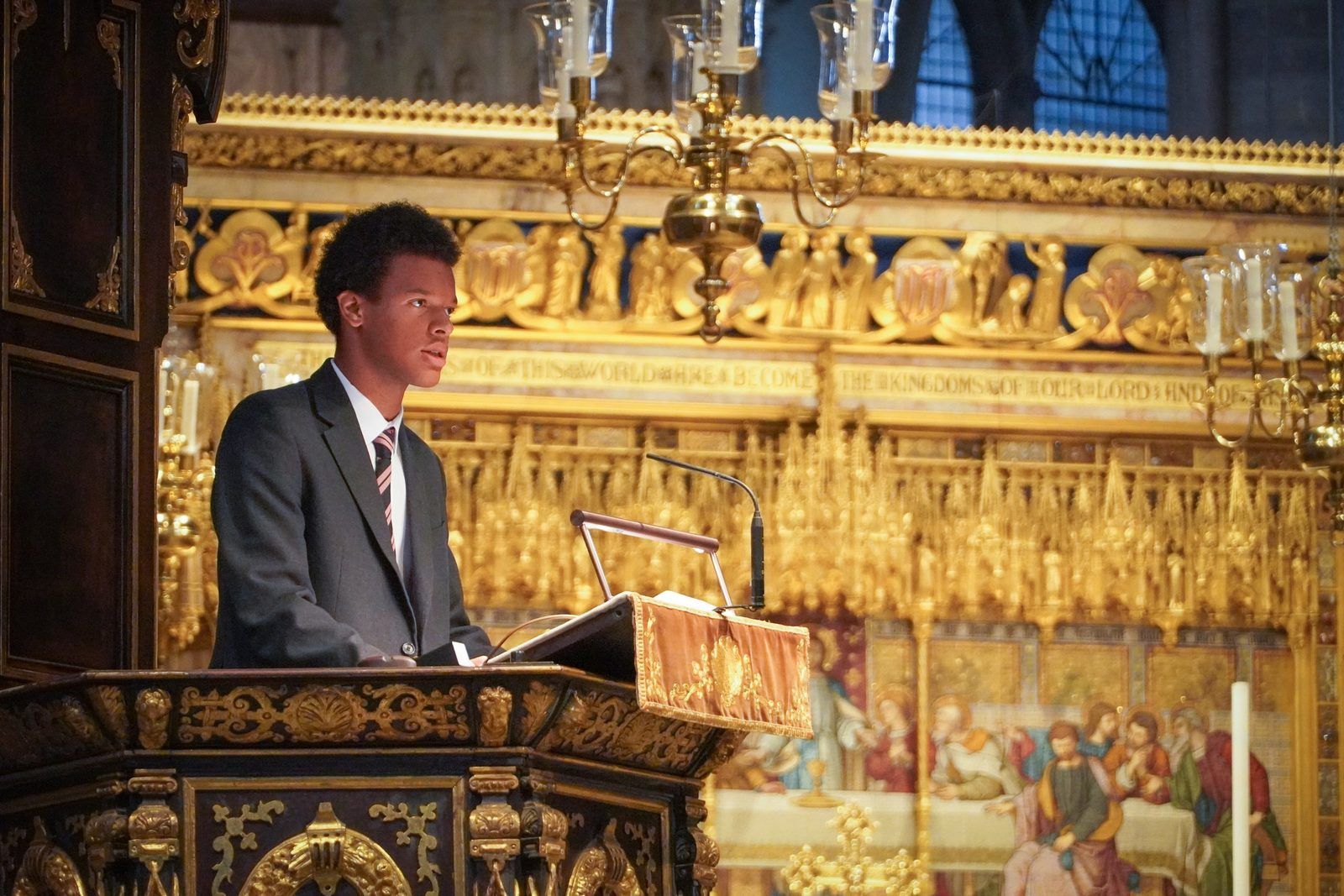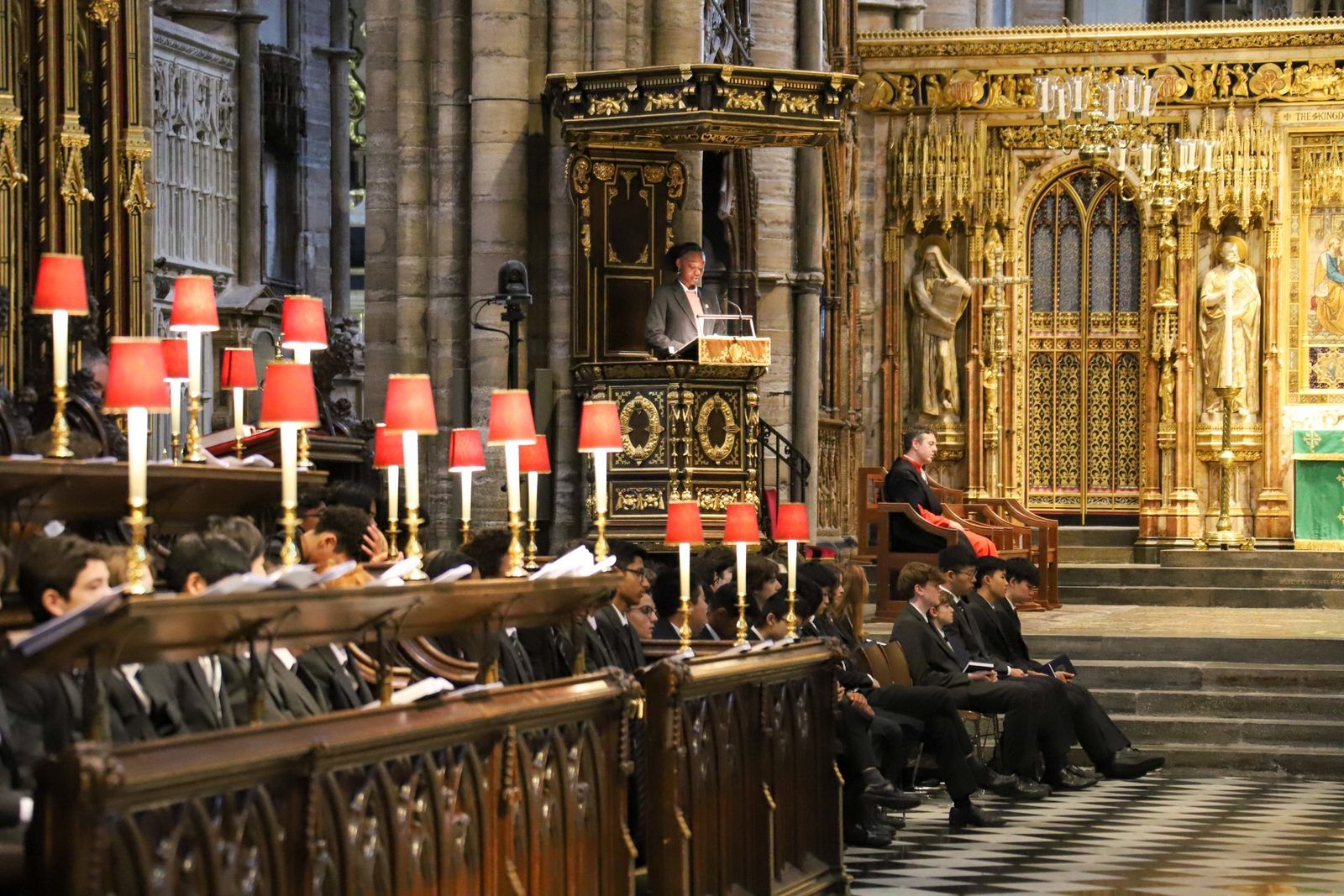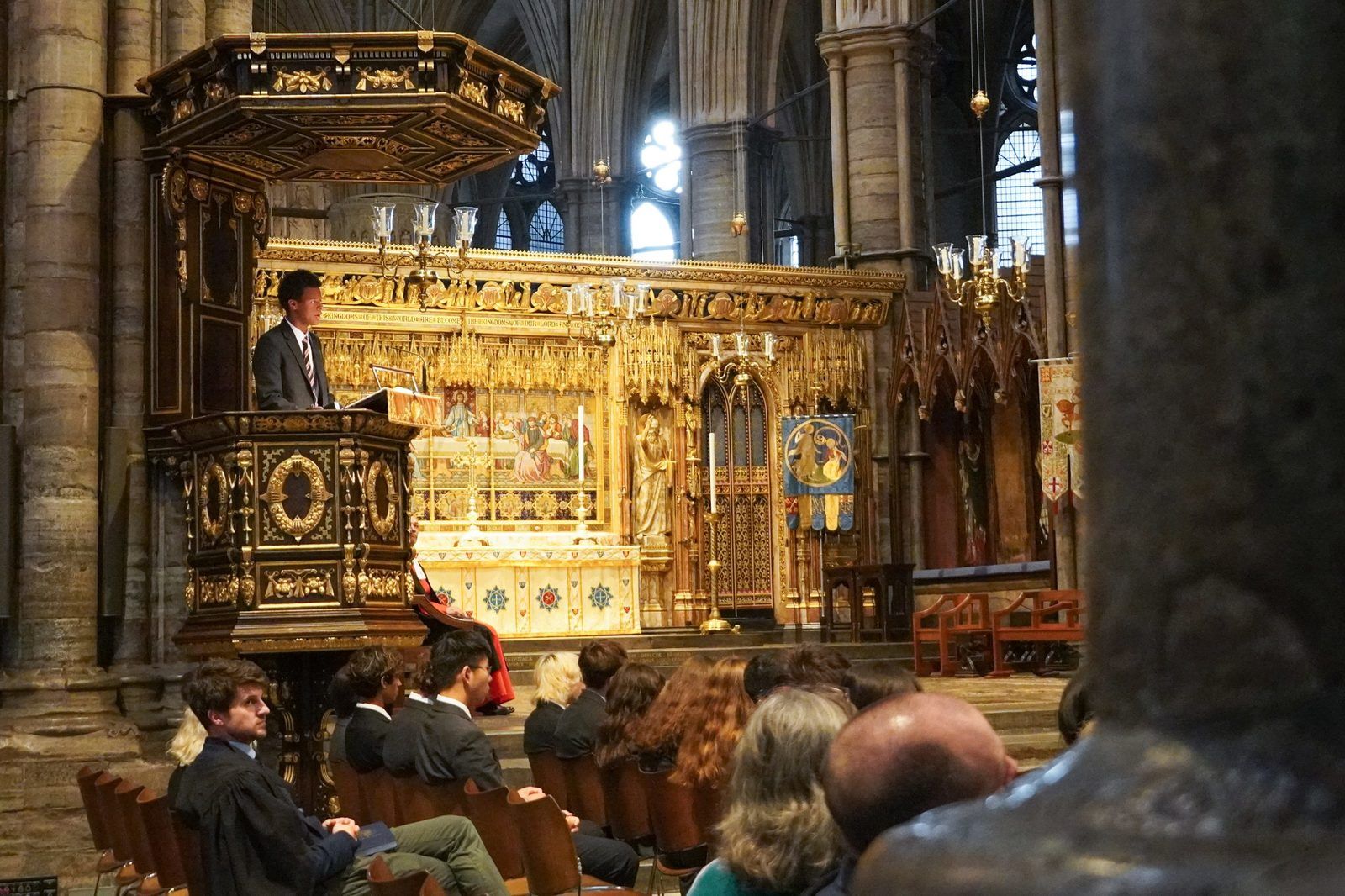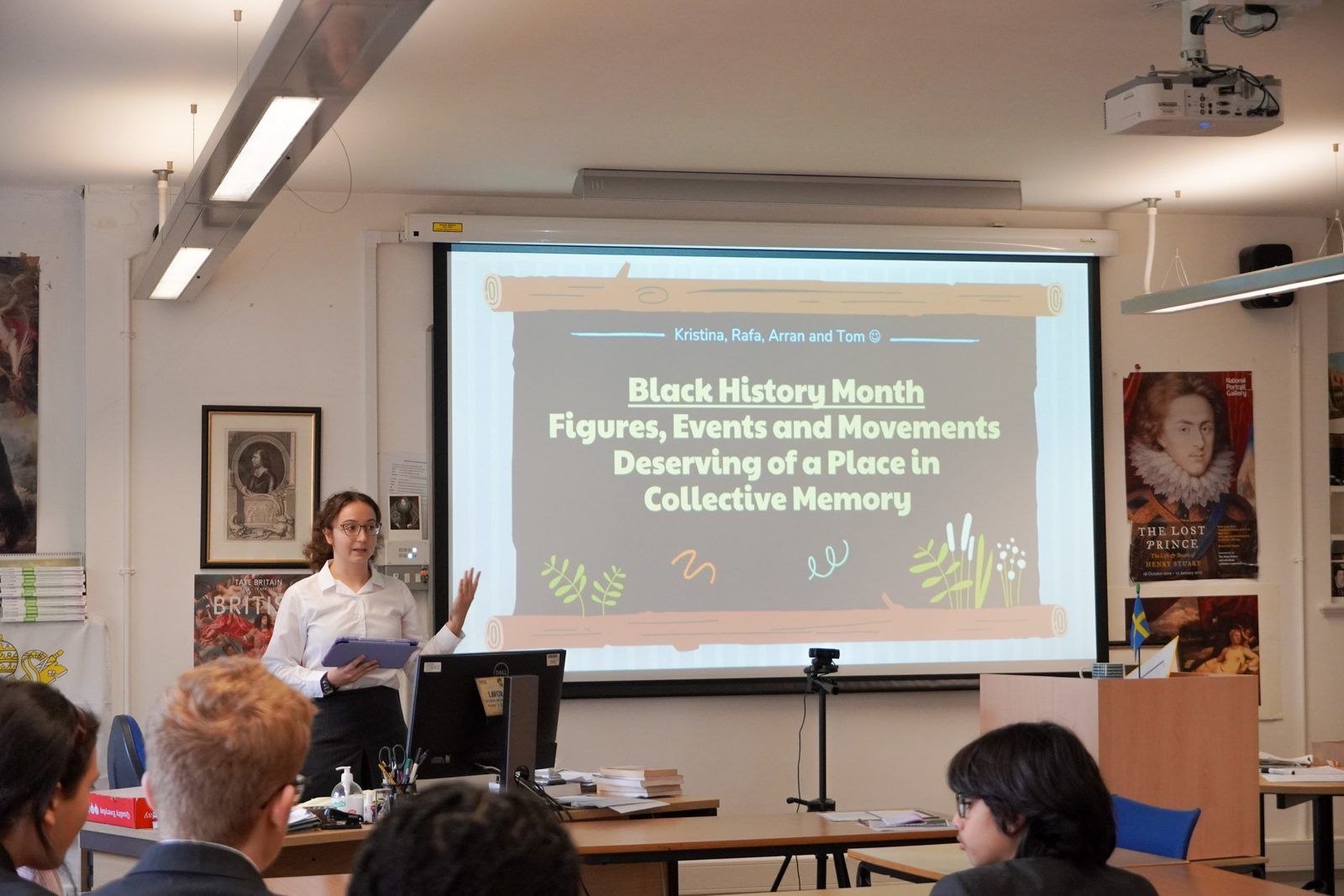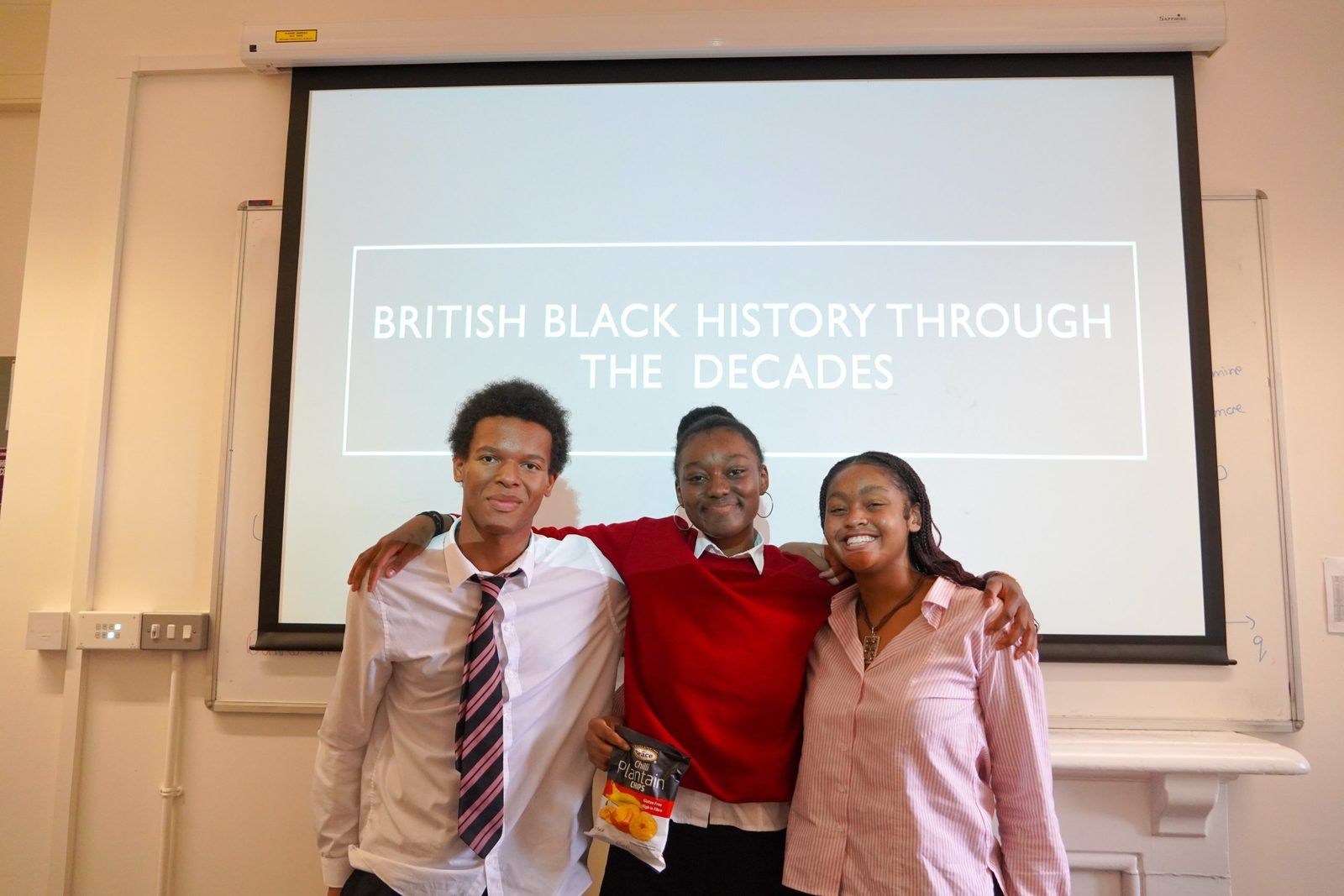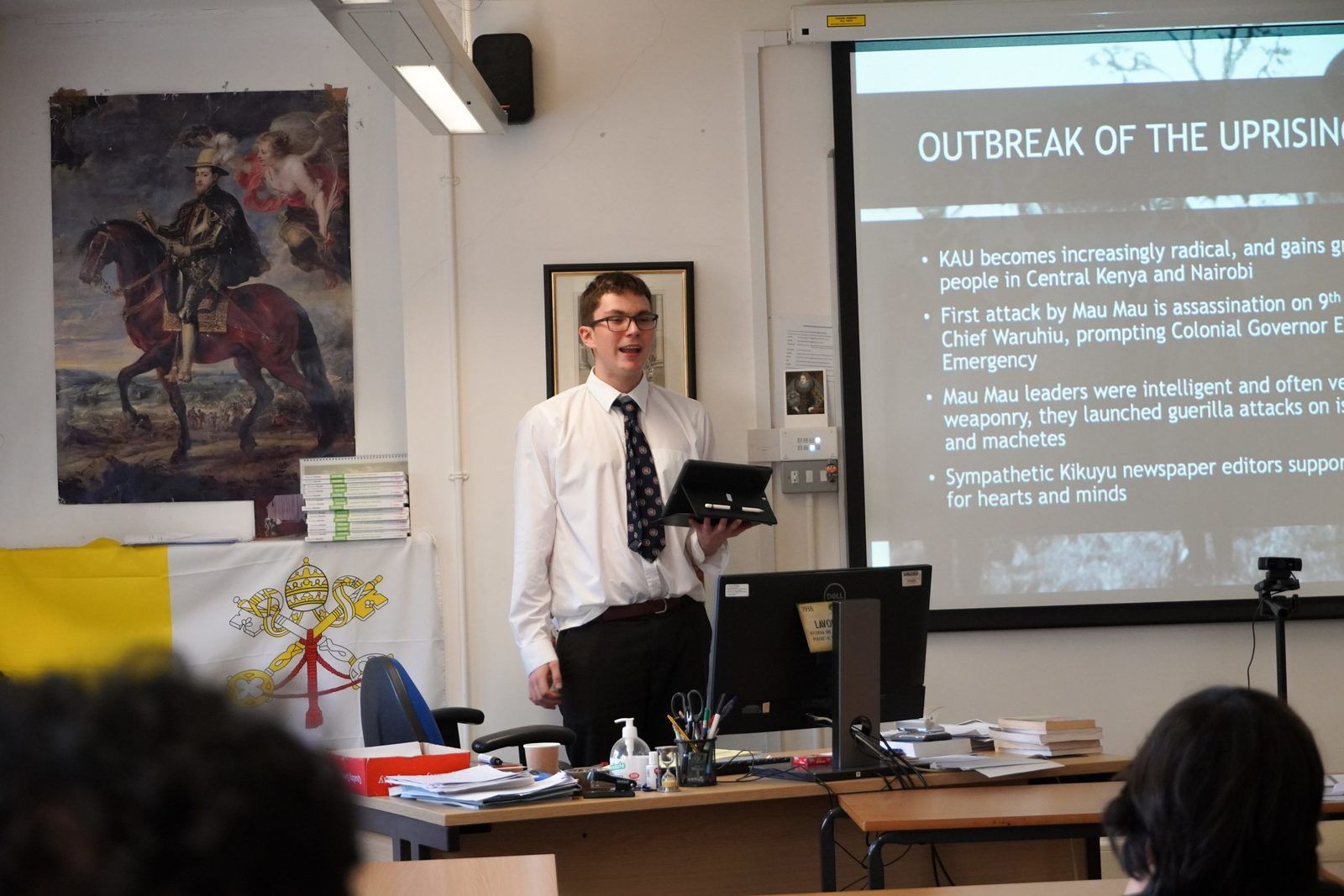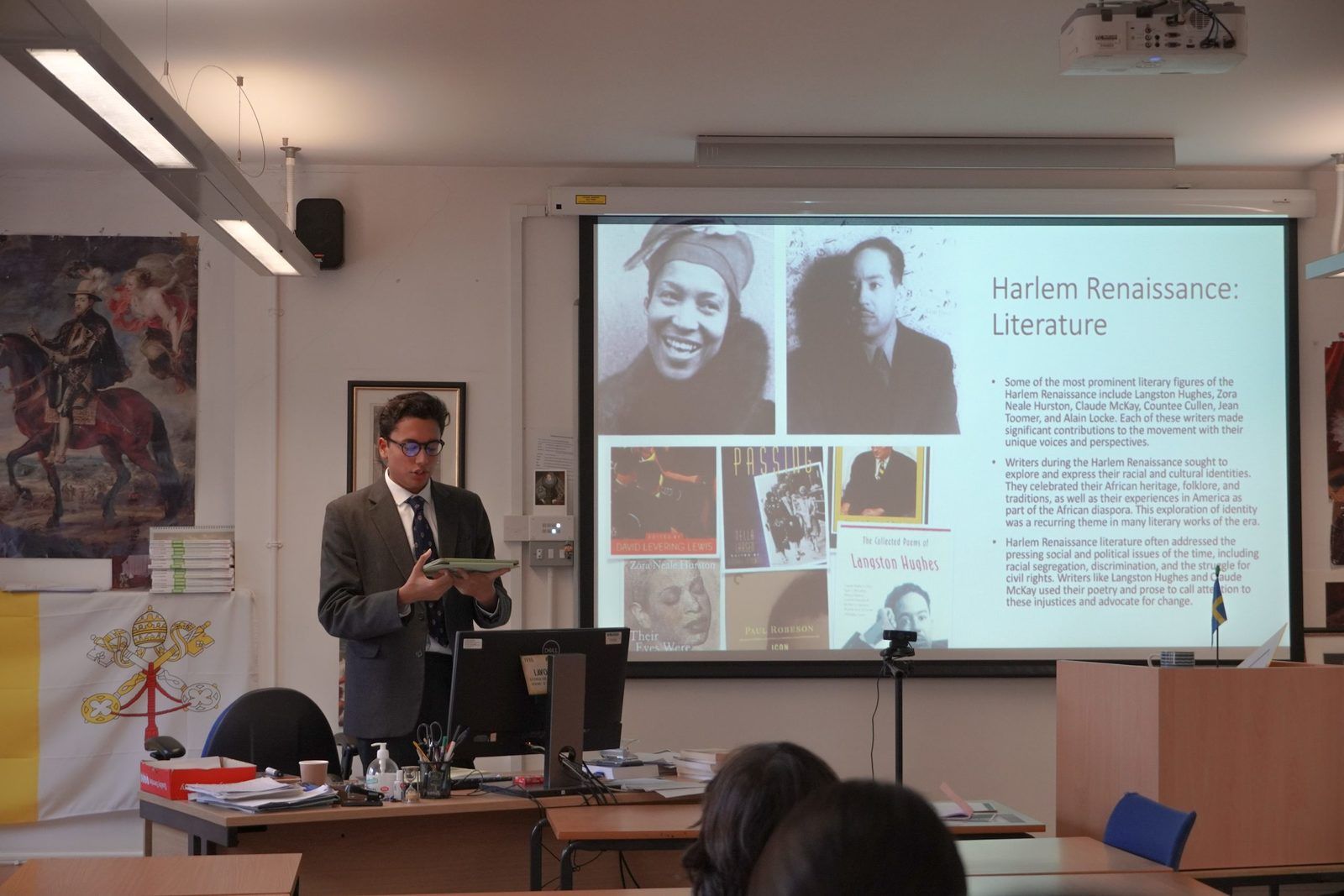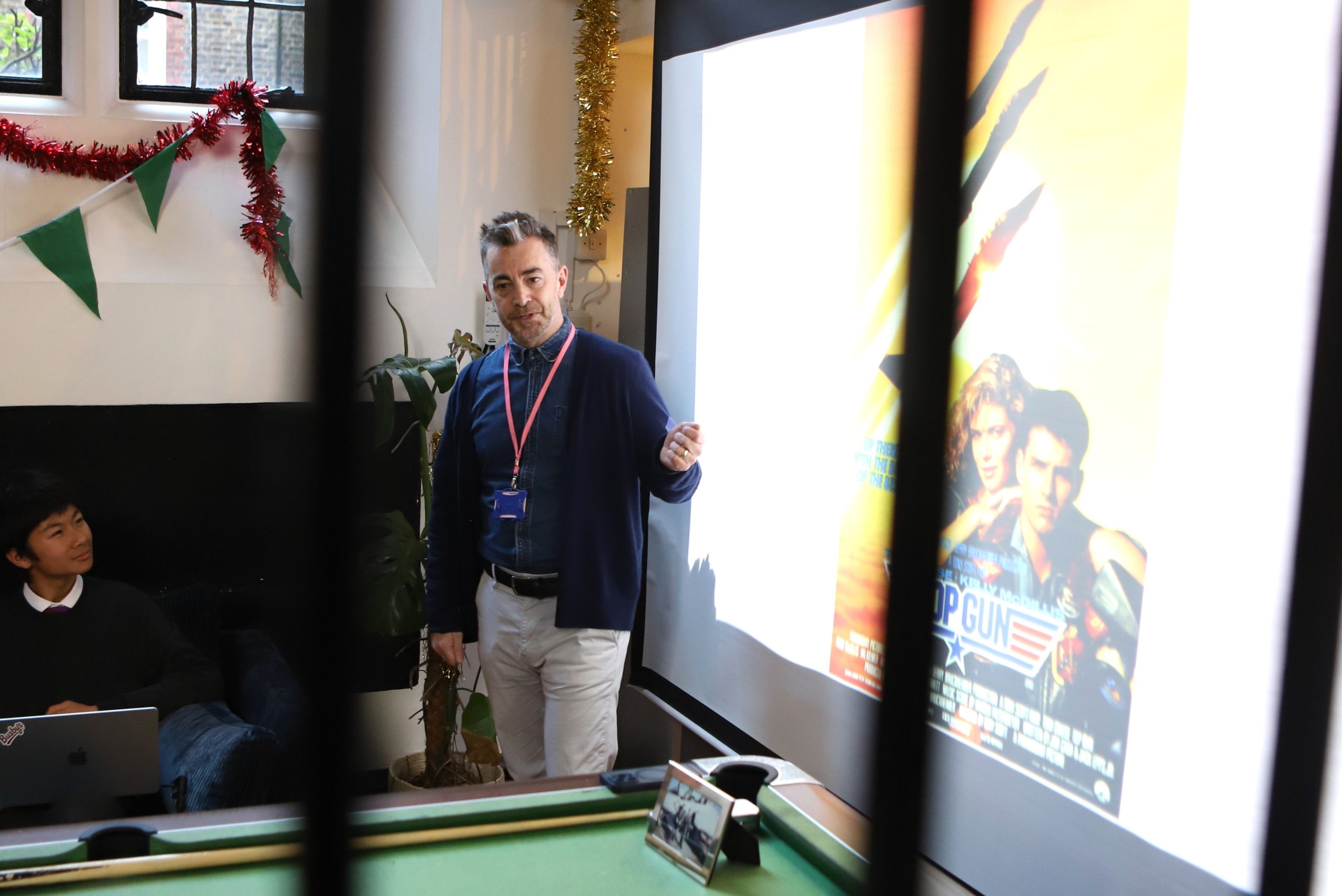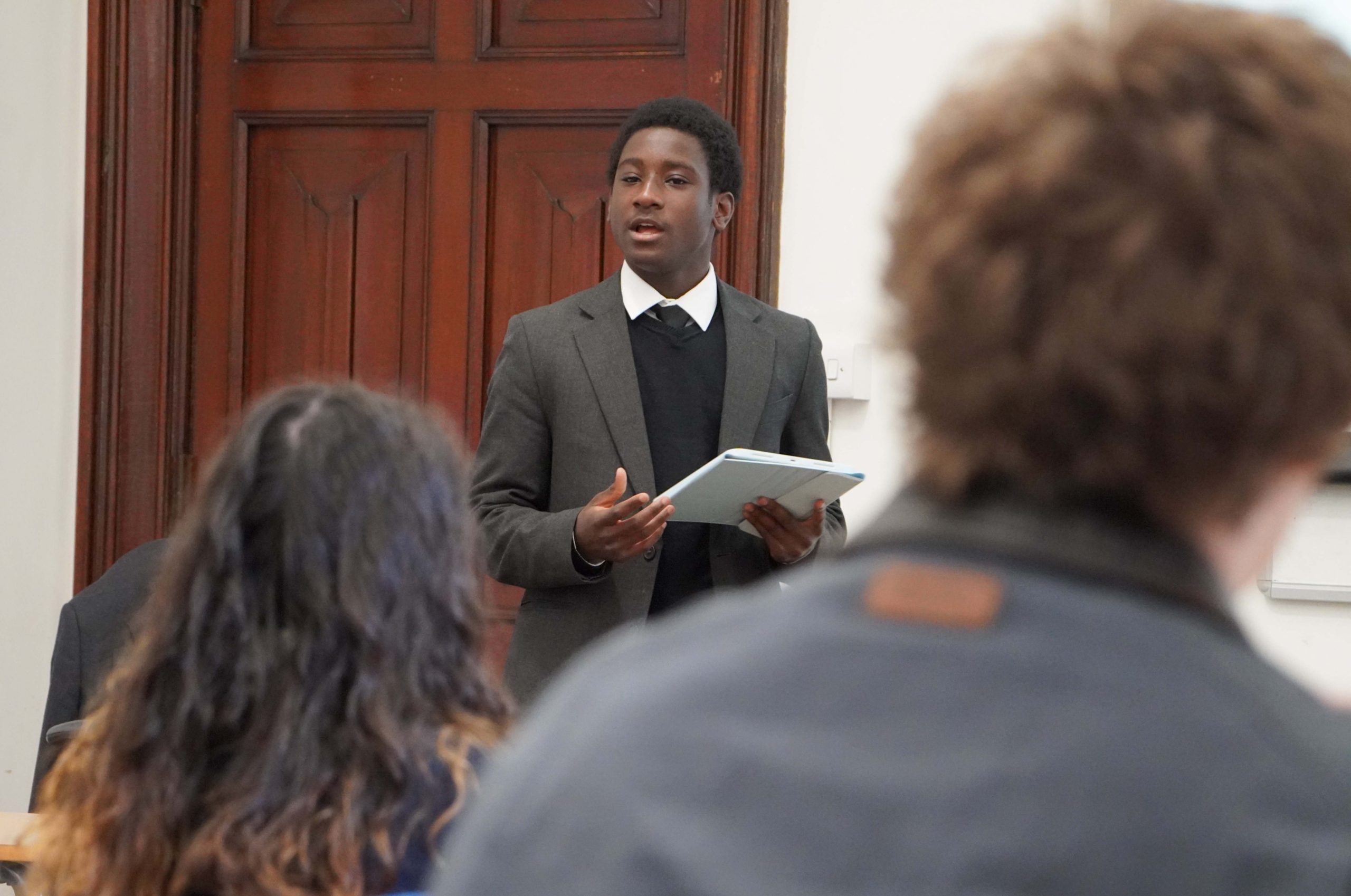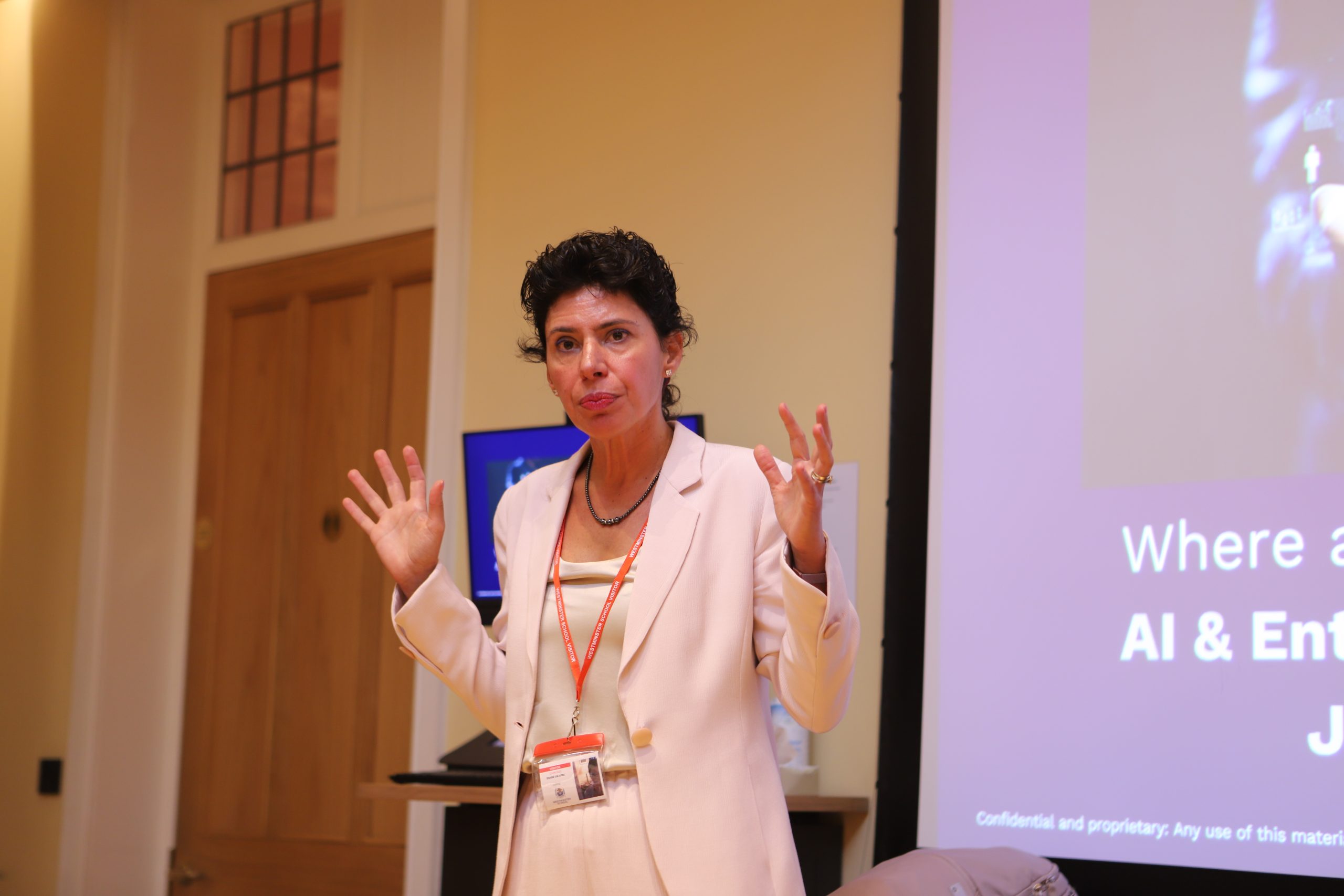Across October pupils came together to hear each other speak of their experiences, and to celebrate and honour the heritage, achievements, and contributions of Black individuals throughout history
The experiences of Westminster’s Black pupils made for powerful accounts, delivered from the pulpit of Westminster Abbey. A heartfelt talk on identity was given by Matthew (Remove, RR), who described the challenges of connecting with his Nigerian heritage, and equally shared how proud he is of being from a mixed background.
Matthew spoke about the difficulty in discovering his identity, the only Black boy in his year for most of school, and how despite ‘loving his Blackness’ he was aware that ‘being Black is complex’.
“For each of us”, he said, “our ancestry serves to validate who we are as people, where we fit, where we belong, and whilst they may not fully define us, they are a rich part of our identity. Black history is all about this ancestry and re-writing the forgotten narratives, telling stories rarely told. In that way, Black History Month belongs to us all, not just black people.
“Re-writing the narrative, ensuring that no one’s humanity or history is left out is the only way forward that will ever make sense of our past. Your story matters and so does mine. Together, our lives, our narrative, then becomes something that goes beyond just October, but instead will last a lifetime.”
Also in Abbey, Charlotte (Remove, DD), spoke on how being Black had impacted her life experiences, saying “The most undeniable thing about my existence is the fact that I am black. Regardless of how I act, dress, or speak, the one thing that people will always see is that I am black. It forms a large part of my identity – one that I cannot privatise – and has impacted my life experiences in more ways than you might imagine.
She talked about how we need to all find our voice when encountering racism, whether that racism was purposeful or coming from a place of ignorance, and however subtle it might be. “When it comes to racism”, she said, “we’re all perfectly aware of the big no-nos, but it goes far deeper than that. By choosing to be actively anti-racist we challenge subtle micro-aggressions, rather than normalising and dismissing them as irrelevant passing comments. Because as a society, we can never move forward without accountability and tackling ignorance. Education is key, and in a school like this we are the ones who should be leading the way. When tested, we all have a choice in how we choose to deal with it. So, when that test comes, when racism rears its head – however subtle it may be – may we not be silenced by fear, but instead, find the courage to speak out.”
The African Caribbean Society played a pivotal role in organising the talks for Black History Month, driven by their dedication and passion. At a Society meeting, Charlotte also delivered a talk on Black British history through the decades. Amongst other key topics, Charlotte discussed the Notting Hill Carnival, now the largest street party in Europe, and how it originated in 1959 as a response to the Notting Hill race riots of 1958. During this talk pupils ate plantain chips, a delicacy which originated in Southeast Asia but are now a popular Caribbean and African food item.
The History Society also came together to hear presentations on Modern Perspectives of Black History through the ages, from the Haitian revolution of the late 1700s, to the Harlem Renaissance of the 1920s and 30s, and the Mau Mau Rebellion of the 1950s.
Westminster’s’ internal pupil publication, the Westminster Student Press, also featured a leading article by Anjola (Remove, RR), who traced the roots and origin of Black History Month, noting that Black History Month “is a time of revelation, recognition and reflection concerning the extensive history between Britain and Black people.”
Related News Stories
